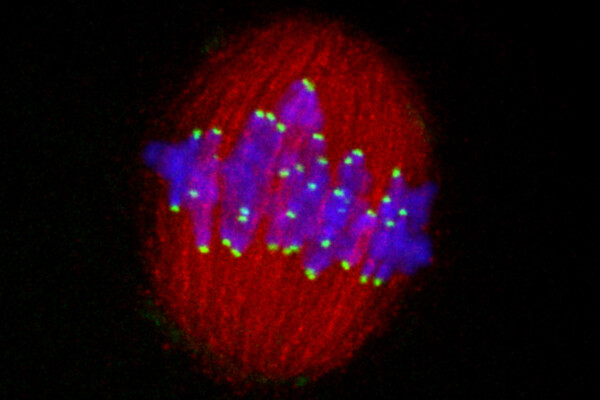
Articles from Katherine Unger Baillie

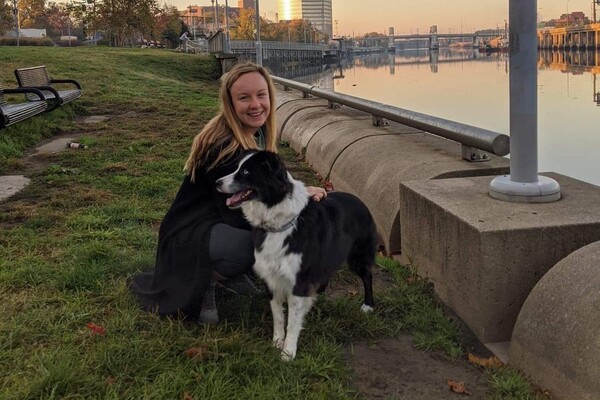
Forging healthy bonds with canine companions
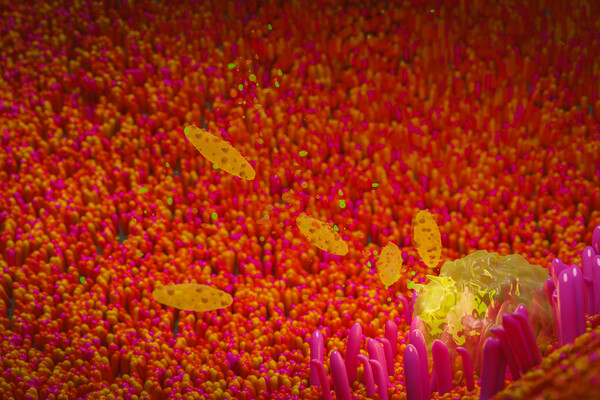
Tracking the earliest steps in parasite infection
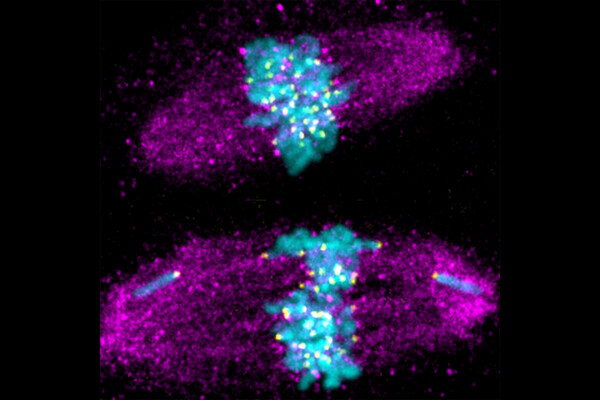
New findings reveal the varied roles of a key protein in cell division. When the protein Meikin is not properly cleaved before meiosis II, chromosomes do not align properly, causing problems in cell division (bottom image). Chromosomes are in blue and the cellular machinery that pulls them to opposite sides of the cell is in purple. (Image: Jun Ma)
Rewiring cell division to make eggs and sperm
Rising senior Alejandra Bahena conceived of an event to bring together, educate, and inspire students planning for a career in health care. The resulting Pre-Health Conference is being held for the second year in a row beginning Aug. 4. (Image: Courtesy of Alejandra Bahena)
Support and inspiration for undergrads pursuing careers in health care
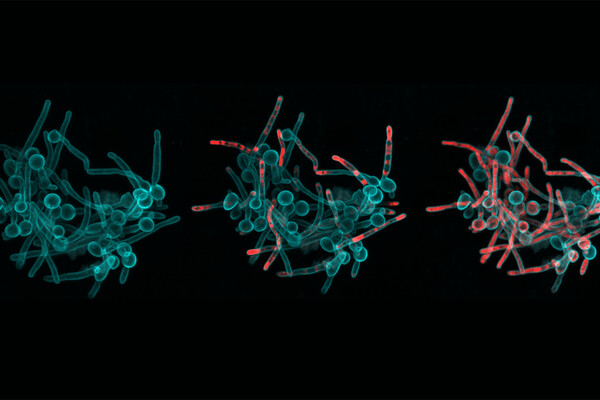
Time-lapsed fluorescence imaging captures how fungi can be killed precisely. Such approaches can improve how tooth decay-causing biofilms might be targeted. (Image: CiPD)
New engineering approaches to address unmet oral health needs
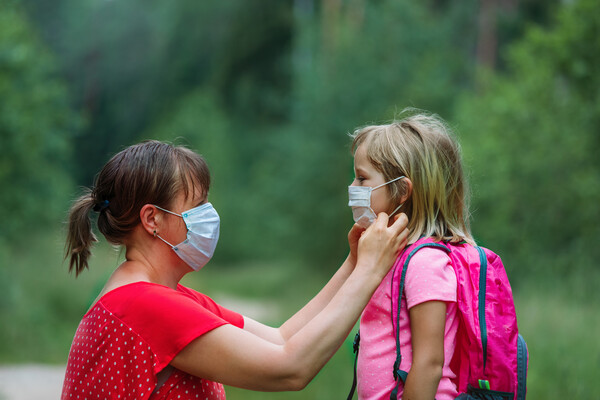
A COVID vaccine for kids
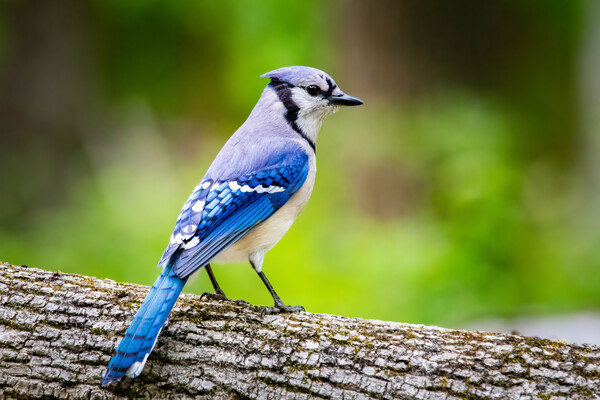
A mysterious condition is affecting common backyard bird species, including blue jays, causing them to become sick and sometimes perish.
nocred
The search for the culprit behind songbird deaths
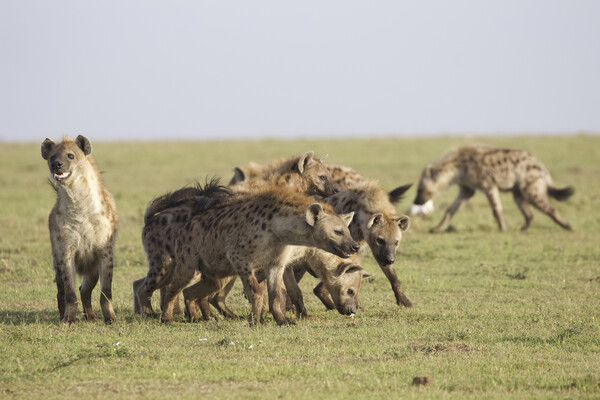
Hyenas benefit from being born to high-ranking mothers, from whom they inherit their social networks, according to research led by biologists from Penn and Michigan State University. (Image: Kate Shaw Yoshida)
High-ranking hyena mothers pass their social networks to their cubs
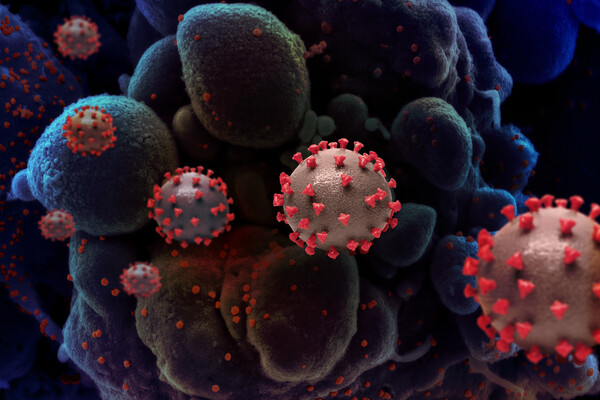
A creative rendition of SARS-CoV-2 virus particles, not to scale. As of mid-July, the virus has sickened more than 186 million people worldwide and more than 4 million people have died from it, according to the World Health Organization. Globally, more than 3.3 billion vaccine doses have been administered. (Homepage image: NIAID)